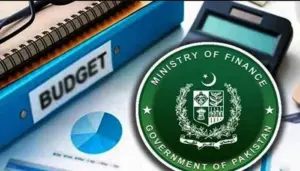Vice Chancellor Hassanally A. Rahman’s transfer gave birth to students’ movement in Sindh

Vice Chancellor Hassanally A. Rahman’s transfer gave birth to students’ movement
By Shahnilla Fayaz
Hassanally A. Rahman vice Chancellor’s transfer gave birth to students’ movement in Sindh.
We are living in an era, when students and teachers are demanding transfer and removal of vice chancellors of different universities. Some half a century back, we witnessed a unique incident, when students protested against the transfer of a vice chancellor and that protest led to students’ movement across Sindh. Later this movement connected with the Anti One Unit movement and anti Ayub Khan Movement.
This was 1967 and this event is known as 4th March, while that Vice Chancellor was Hassan Ali Abdul Rehman. He preferred to write his name Hassanally A. Rahman.
Hassan Ali Abdul Rehman, the educationist and trusted lawmaker of Sindh, was born in Karachi on May 5, 1909.
Hassan Ali Abdurrahman received his early education in Sindh Madrassah and St. Patrick’s School in Karachi, followed by a barrister’s degree from Middle Temple College, England, in 1934.
Vice chancellor Anila Rehman sent on compulsory leave
Vice Chancellor of Karachi University: 4 candidates are in race
He, along with his younger brother Tufail Ali Abdul Rehman, founded the Sindh Muslim Government Law College Karachi in 1947. He also became the first principal of the college.
In addition, Hassanally A. Rahman is also known as a social worker and community leader. He was one of the founding members of Karachi University.
Hassanally A. Rahman was twice the Vice-Chancellor of the Sindh University of Jamshoro. During his tenure, the main event of the student movement of Sindh took place on March 4, 1967.
“The movement itself was sparked when the Vice Chancellor of Sindh University, Hasanally Abdur Rehman, was dismissed in February 1967 by the Governor of West Pakistan, Nawab Amir Mohammad Khan Kalabagh.
Hyderabad’s Marshal Law Administrator Gen Tika Khan, tried to abolish the Sindhi subject from the University of Sindh and subsequently started a conspiracy to remove the patriotic vice-chancellor, Hassan Ali Abdul Rahman, through then Commissioner Masroor Hassan.
The Sindh Student launched movement against this act.
The struggle not only led to an event like March 4, but also gave a fresh impetus to the student movement, the national movement against One Unit.
Fourth March 1967 is a landmark day for the political struggle, courage and action of the Sindhi students, when hundreds of students were injured by police raiding the students’ procession at the Rajputana Hospital, Hyderabad. This is a really broad background of the event.

During the One Unit era, there was a political and national thinking emerging within the Sindhi people against the constant harassment by the Center. Therefore, this event is considered as a symbol of public outcry and resistance against the Ayub dictatorship and the turning point in Sindh’s politics of rights.
This student’s movement created many known students leaders, who later on contributed in political, cultural and social awareness of Sindhi society. We can name a few, Yousuf Laghari, Jam Saqi, Yousuf Talpur, Dr Suleman Shaikh, Ali Akber Brohi, Abdul Rahim Samo, Masood Noorani, Mujeeb Pirzado, Masood Pirzado, Ashfaq Memon, Munwar Memon, Muzaffar Hussain Sheikh, Agha Zahid, Rafiq Safi, Sharif Memon, Aftab Isran and many others.
Hassanally Aldul Rehman, remained General Secretary of the Pakistan Educational Society and president Sindh Madressah and S. M Law College.

S. M Law College established on June 28, 1947, is one of the oldest law schools of Pakistan, situated in Karachi, Sindh. The law college started functioning at Sindh-Madrasa-tul-Islam building. After the closure of Shahani Law College, the college shifted to its present building in 1948 and was affiliated with the University of Karachi.
The college has produced numerous notables including Chief Justices of Pakistan, Chief Justices of Federal Shariat Court, Chief Ministers of Sindh, Federal Ministers, and many judges of the Supreme Court of Pakistan and Sindh High Court and renowned lawyers.
Hassanally Abdul Rehman led the Pakistani delegation to UNESCO in 1952 and represented Pakistan at the Commonwealth University Conference in 1953.
His younger brother, Tufail Ali Abdur Rahman, was also a lawyer in Criminology. He died in 1986. He was laid to rest in the Hassan Square cemetery in Karachi.
His first marriage was from the Ziauddin Shaikh family of Hyderabad and his second marriage was from Karachi. Of his descendants, Dr. Ghazala Rahman taught in English as a teacher in the United States. Another daughter, Humera Rahman, is active in activism, while his third daughter, Sherry Rahman, is from second wife. She is known as a politician and has been nominated to the United States in November 2011 and later remained senator on PPP platform.





